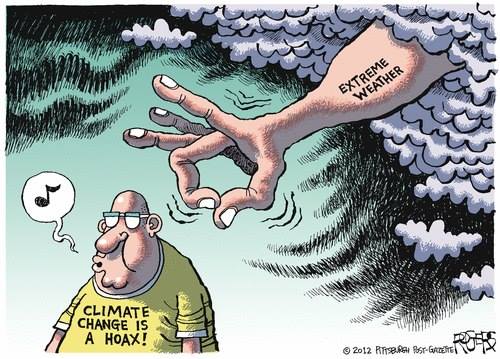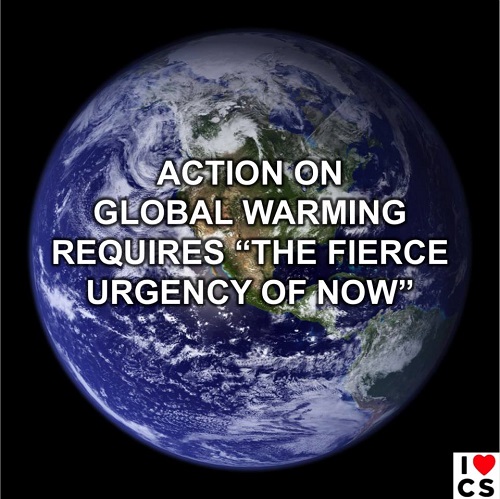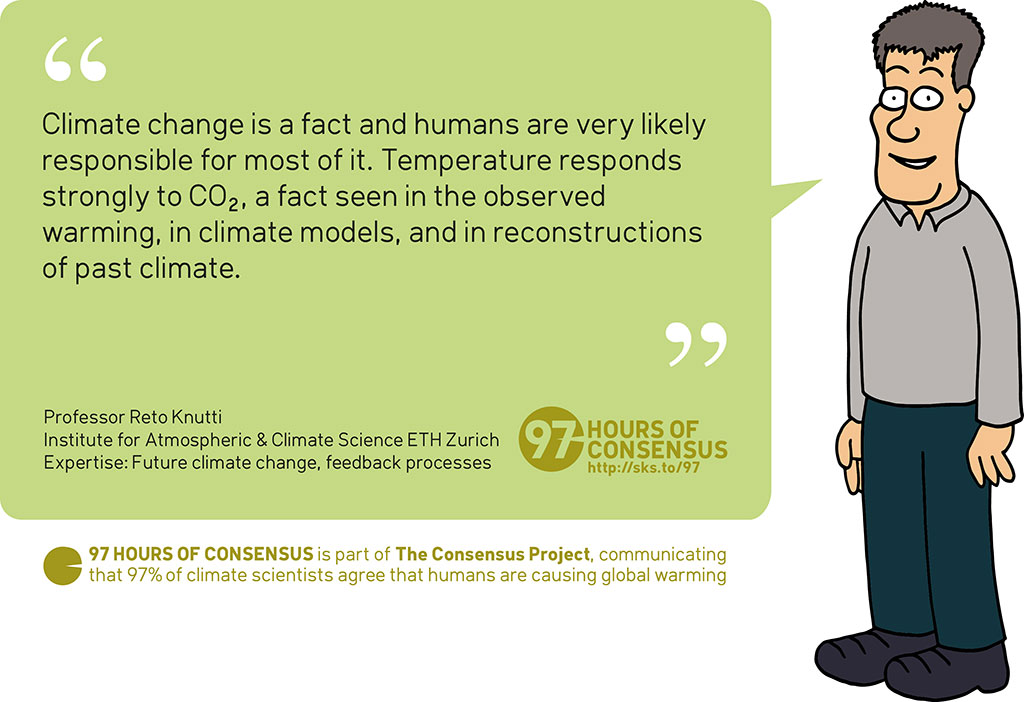2015 SkS Weekly Digest #22
Posted on 31 May 2015 by John Hartz
SkS Highlights
Making sense of the slowdown in global surface warming by Kevin C garnered the most comments of the articles posted on SkS during the past week. Coming in a close second was John Mason's Spoiled ballots, spoiled views: an election snapshot from Powys, Wales, UK.
El Niño Watch
Here’s What 2015’s Strong El Niño Means For This Year’s Hurricane Season by Natasha Geiling, Climate Progress, May 28, 2015
Is an El Niño next in pattern of treacherous weather? by Ben Tracy, CBS News, May 29, 2015
Toon of the Week

Hat tip to I Heart Climate Scientists
Quote of the Week
Andrew E. Dessler, a climate researcher at Texas A & M, compared the question of climate change and weather to trying to figure out which of Barry Bonds’s home runs were caused by his steroid use.
“You know statistically some of them were, but you don’t know which ones,” he said. “Almost certainly, it would have rained a lot even without climate change — but it’s possible climate change juiced it, added a little bit.”
Scientists warn to expect more weather extremes by John Schwartz, New York Times, May 27, 2015
SkS in the News
In his letter-to-the-editor posted by the Augusta (GA) Free Press, Pete Kurtz touts the SkS website as a credible source of information about a prominent climate scince denier.
In his Guardian essay, How fossil fuel burning nearly wiped out life on Earth – 250m years ago, George Monbiot states:
The latest research into the catastrophe at the end of the Permian is summarised in two articles by the geologist John Mason on the Skeptical Science site. The strongest clues all seem to point to the same conclusion: that the extinctions were triggered by the eruption of an igneous belt even bigger than the Deccan plateau: the Siberian Traps. As well as CO2, the volcanoes there produced sulphur dioxide, chlorides and fluorides, causing acid rain and the depletion of ozone.
In his Vox post, Jeb Bush fumbles for "moderate" stance on climate, falls on face, David Roberts cites and links to the Intermediate version of the SkS Rebuttal article, The 97% consensus on global warming.
In his Financial Post op-ed, Manufacturing doubt about climate consensus, John Cook sets the record staight about the TCP.
Coming Soon on SkS
- The Carbon Brief interview: Prof Dame Julia Slingo OBE (Leo Hickman)
- Melting moments: a look under East Antarctica’s biggest glacier (Tas van Ommen)
- Video: scientists simulate the climate of The Hobbit's Middle Earth (Dana)
- 2015 SkS Weekly News Roundup #23A (John Hartz)
- The Carbon Brief interview: Thomas Stocker (Roz Pidcock)
- Guest post (John Abraham)
- 2015 SkS Weekly News Roundup #23B (John Hartz)
- 2015 SkS Weekly Digest #23 (John Hartz)
Poster of the Week

SkS Week in Review
- 2015 SkS Weekly News Roundup #22B by John Hartz
- Scientists discuss how strongly a warming Arctic is implicated in extreme weather by Robert McSweeney (Carbon Brief)
- Sea level is rising fast – and it seems to be speeding up by Christopher Watson, John Church, and Matt King (The Conversation AU)
- 2015 SkS Weekly News Roundup #22A by John Hartz
- Memo to Jeb Bush: denying human-caused global warming is ignorant by Dana Nuccitelli (Climate Consensus - the 97%, Guardian)
- Making sense of the slowdown in global surface warming by Kevin C
- Spoiled ballots, spoiled views: an election snapshot from Powys, Wales, UK by John Mason
- 2015 SkS Weekly Digest #21 by John Hartz
97 Hours of Consensus: Reto Knutti

Quote derived with permission from author from:
"Climate change is a fact and humans are very likely responsible for most of it. Long term impacts will mostly be negative. On the positive side: Costs of mitigation, that is to reduce emissions, are smaller than those for prevented damages."































 Arguments
Arguments






























Comments